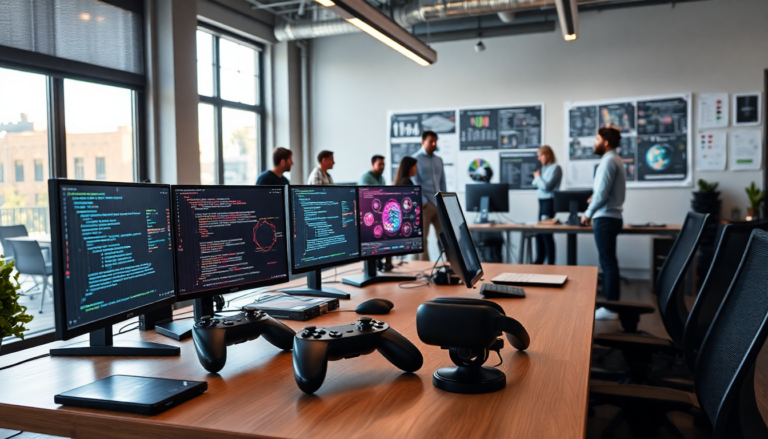Argomenti trattati
The gaming industry is at a pivotal moment, driven by advancements in artificial intelligence. Recent discussions at the Digital Entertainment World summit showcased how AI is not just a tool for enhancement but a game-changer in creating new experiences for players. With leaders like Haiyan Zhang, General Manager of Gaming AI at Xbox, leading the charge, the possibilities seem endless.
Generative AI and its role in gaming
Generative AI is rapidly becoming a cornerstone in the gaming landscape. It enables developers to create vast and intricate worlds with unique narratives tailored to individual players. This technology allows for an unprecedented level of customization, where gaming experiences can adapt in real-time to player choices and preferences. Imagine stepping into a game where every decision you make not only alters your path but also influences the world around you in ways that feel personal and deeply engaging.
At the summit, Haiyan Zhang illustrated how this technology could lead to innovative storytelling methods. By integrating AI, creators can craft narratives that evolve based on player input, making each gaming session a unique adventure. This shift could redefine player engagement, making it more immersive and interactive than ever before.
Innovation culture in the gaming sector
Haiyan emphasized that fostering an innovation culture is crucial. It’s not solely about having a few visionary thinkers; it requires a collaborative environment where ideas can flourish. The gaming industry, known for its fast-paced evolution, thrives on small teams that can rapidly prototype and iterate on their ideas. This nimbleness allows for creativity to thrive, enabling developers to push boundaries and explore new concepts.
Moreover, the importance of diverse perspectives cannot be overstated. By welcoming maverick thinkers from various backgrounds, the industry can challenge conventional norms and drive groundbreaking innovations. As discussed, the intersection of gaming with other industries, such as entertainment and technology, can lead to collaborations that yield amazing results.
The impact of AI on gameplay mechanics
AI’s influence goes beyond just storytelling; it significantly enhances gameplay mechanics as well. For instance, machine learning algorithms can analyze player behavior to adjust difficulty levels dynamically, ensuring a balanced challenge that keeps players engaged without causing frustration. This adaptability can lead to a more satisfying experience, as players feel their skills are recognized and catered to.
Furthermore, AI can assist in creating intelligent non-player characters (NPCs) that react and evolve based on player interactions. These characters can provide more realistic and engaging experiences, blurring the lines between scripted responses and genuine interactions. The potential for AI-driven NPCs to enhance immersion is exciting and sets the stage for a new era in gaming.
Community and collaboration in gaming
Community-driven initiatives are becoming increasingly vital in the gaming industry, especially as AI tools become more accessible. Developers are recognizing the value of engaging with their player base to gather feedback and ideas. This participatory approach not only strengthens community ties but also leads to games that truly resonate with players.
During discussions at the summit, various industry leaders highlighted the importance of maintaining open lines of communication between developers and players. By embracing community input, developers can prioritize features that matter most to their audience, fostering a sense of ownership and loyalty among players.
Looking ahead: The future of AI in gaming
The future of AI in gaming is bright and full of potential. As technology continues to evolve, we can expect to see even more innovative applications that will shape how we play and interact with games. The ongoing convergence of gaming and Hollywood illustrates a broader trend where storytelling becomes a shared experience between creators and consumers, driven by AI capabilities.
As we stand on the brink of this exciting future, the role of AI will likely expand, paving the way for experiences that we haven’t yet imagined. The dialogue surrounding these advancements is crucial, as it helps us navigate the possibilities and challenges that lie ahead.

